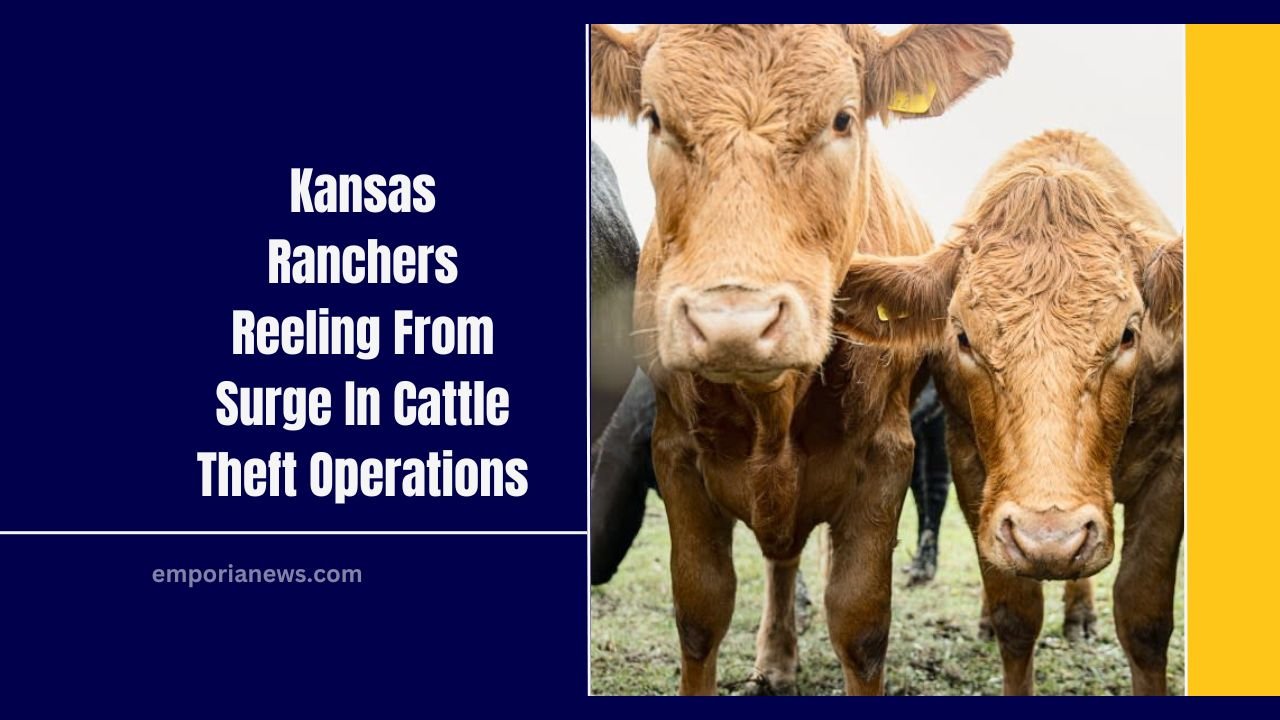TOPEKA – What was once a tale from the Wild West is now an ongoing challenge for modern-day Kansas ranchers. Cattle theft, or cattle rustling, is far from a relic of history — it remains an active and costly problem impacting livestock producers across the state.
With Kansas boasting a thriving cattle industry — the third-largest beef-producing state in the nation — the financial impact of livestock theft is growing, driving increased concern from both law enforcement and agriculture officials.
Cattle Rustling: An Old Crime With New Consequences
According to the Kansas Historical Society (KSHS), cattle drives and ranching have long been part of the state’s fabric.
Today, however, organized cattle theft operations continue to exploit Kansas ranchers, leaving families and businesses struggling to recover.
Both the Kansas Attorney General’s Livestock Brand Investigation Unit and the Kansas Livestock Association (KLA) confirm that while theft incidents may not dominate state headlines, each event leaves a significant financial and emotional toll on individual ranchers.
“Money and time lost turns into a big issue for those impacted,” explained Scarlett Madinger, Vice President of Communications at the KLA. “Even a single missing cow can throw a family’s budget into turmoil.”
How Thieves Strike: Crimes of Opportunity
Modern cattle thieves don’t wear masks or ride in gangs. Instead, they exploit vulnerabilities and rely on careful observation of ranchers’ routines.
Jim Pinegar, an investigator with the Attorney General’s Livestock Investigation Unit, notes that “most agriculture people have set routines”, such as attending church, local ball games, or visiting feed stores. Thieves observe these patterns and strike when ranchers are away.
An unlocked gate or an unattended pasture can be all that’s needed for criminals to quickly haul away valuable livestock.
Financial Impact on Kansas Ranchers
The economic impact of cattle theft in Kansas is staggering. In Fiscal Year 2024 alone, Kansas producers suffered an estimated $4.3 million in losses due to cattle theft.
The Livestock Investigation Unit typically manages six to 20 active cattle theft cases at any given time. And the problem isn’t limited to physical theft — online cattle sales scams are also on the rise.
In 2024, the Unit investigated four cases of internet cattle fraud amounting to a combined $1.3 million in losses.
These scams often involve producers purchasing cattle online, wiring money in good faith, only to find that no cattle are ever delivered or that inferior animals are sent instead.
Key Statistics on Cattle Theft in Kansas (FY 2024)
| Category | Figures |
|---|---|
| Total losses from physical theft | $4.3 million |
| Average active theft cases | 6 to 20 |
| Total losses from online fraud | $1.3 million |
| Registered livestock brands in Kansas | ~18,000 |
| Percentage of brands actively used | Small % |
Why Kansas Cattle Are Targeted
Thieves most often target beef cows, especially cow-calf pairs that can fetch a good price quickly.
“Thieves feel like they can make a quick turnaround by selling those calves,” Madinger said. Stocker and feeder cattle in the Flint Hills are also prime targets due to their value and relative accessibility.
Prevention: What Ranchers Can Do
Both Madinger and Pinegar emphasize that branding cattle is one of the strongest deterrents to theft, yet it remains underutilized. Kansas currently has about 18,000 registered brands, but only a small portion are regularly used.
Ranchers are urged to:
- Brand and tag their cattle
- Count their herds frequently to detect any discrepancies early
- Secure gates and fences
- Vary daily routines to reduce predictability
- Be cautious with online transactions and only pay upon cattle delivery
- Know their neighbors and encourage community vigilance
“Know your neighbors, know who’s going in and out,” Madinger advised. “Even if you don’t own cattle, you can be a good neighbor by alerting them to anything suspicious.”
Authorities Urge Caution With Online Sales
The rise of online cattle markets adds a new layer of risk. Pinegar stresses that ranchers should never wire money for cattle they haven’t seen or verified.
“Producers will call about cattle advertised on the web… they trust the seller, wire money, and are left empty-handed,” he said.
Investigators advise using trusted sellers and avoiding payment until cattle are physically loaded for transport.
Cattle theft is far from a thing of the past in Kansas — it’s a very modern problem with millions in losses annually.
Ranchers must remain vigilant and proactive to protect their livelihoods from this evolving threat. Through strong community awareness, consistent branding practices, and cautious online behavior, Kansas producers can fight back against this age-old crime in a modern world.




